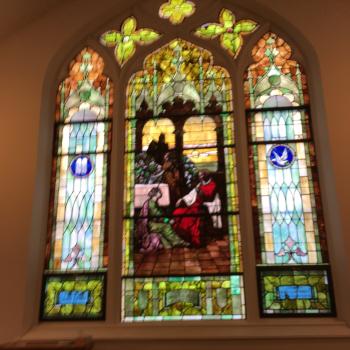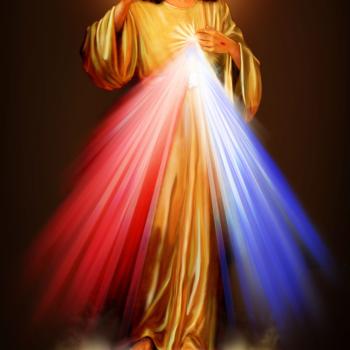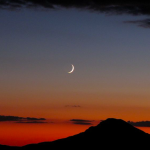 Since he is one of the great witnesses of Christianity in our times, it is sad that most Christians do not know or ignore what is said by Bartholomew, the Ecumenical Patriarch. As the Patriarch of Constantinople, he holds the most important hierarchical position of the Orthodox Church. His new work, Encountering the Mystery: Understanding Orthodox Christianity Today (New York: Doubleday, 2008), is one of those great theological and spiritual treasures which none should ignore. His bold words often demonstrate the prophetic task he has been given to our times. But are we willing to listen?
Since he is one of the great witnesses of Christianity in our times, it is sad that most Christians do not know or ignore what is said by Bartholomew, the Ecumenical Patriarch. As the Patriarch of Constantinople, he holds the most important hierarchical position of the Orthodox Church. His new work, Encountering the Mystery: Understanding Orthodox Christianity Today (New York: Doubleday, 2008), is one of those great theological and spiritual treasures which none should ignore. His bold words often demonstrate the prophetic task he has been given to our times. But are we willing to listen?
His Ecumenical Holiness begins the book with a biographical note before engaging Orthodox history and its basic theological tenets. While the presentation is well done, one must remember this discussion is for the non-expert, and so one should not expect any radical theological debates in them. This is a good thing; Orthodox theology and spirituality can be quite distinct from its Western counterpart, and so there is always the need for presentations such as this. For Orthodoxy, theology always contains a mystical element. While positive statements can be made about God, we must understand that God transcends human comprehension. What is not said about God is greater than what can be said, and what can be said must be understood as being a relative, finite expression of an infinite mystery. Thus, for Orthodox theology, this greater silence must always be kept in mind. Theology is not really a science but doxology. “Therefore, theology transcends all formulation and definition, being identified rather with personal encounter and a loving relationship with God in the communion of prayer. In such a union, the desire always remains insatiable and unending: it is the love of the bride in the Song of Songs, who forever stretches out her hands toward the one that cannot be grasped, who ever reaches for the one that cannot be attained” (53).
By the end of the first half of the book, the Patriarch has provided the basic elements of Orthodox theology. This allows him, in the rest of the book, too engage the theological points he has made and show how they relate to orthopraxis, or right action, within the world. We must turn to the numerous the points he makes, recognizing, of course, that we can do so only with a cursory glance for the sake of this review.
The environment, a concern which has taken hold of the Patriarch for some time, receives a considerable amount of reflection. What he says is all grounded upon his Orthodox spiritual heritage. “In the Orthodox liturgical perspective, creation is received and conceived as a gift from God. The notion of creation-as-gift defines our Orthodox theological understanding of the environmental question in a concise and clear manner while at the same time determining the human response to that gift through the responsible and proper use of the created world. Each believer is called to celebrate life in a way that reflects the words of the Divine Liturgy: ‘Thine own from Thine own we over to Thee, in all and for all’” (98). He points out that Orthodox reflection about creation must be eucharistic. “A eucharistic spirit also implies using the earth’s natural resources with a spirit of thankfulness, offering them back to God; indeed, we are to offer not only the earth’s resources but ourselves” (101). This eucharistic spirit recognizes how all things come together and give themselves back to God. “There may be a hierarchy of priority, but it is not a sharp distinction of comparison. The truth is that we are all one family — human beings and the living world alike – and all of us look to God the Creator” (107). And God, in his graciousness, takes what is given and transforms them through grace, sanctifying them for his glory.
Social issues receive great consideration by the Patriarch. He engages a discussion on the personal need for freedom as the basis premises of his social concerns. He grounds his discussion with a Christian point: freedom can only be understood in relation to its most fundamental form, the liberation of the human person from the fall of Adam. “Spiritual captivity or enslavement inevitably leads also to social and political subservience and slavery. By the same token, liberation from the fall delivers us from any form of constraint, leading to social and political liberation and freedom. However, for the person guided by the Spirit, this in no way implies complacency of comfort. Indeed it primarily indicates and perhaps dictates a sense of identification and solidarity with the weak and vulnerable…” (131). Social justice is a necessary consequence of Christian living. One who is guided by the Spirit of Christ will be guided to act for the cause of Christ. This should reaffirm our need to be wise stewards over creation, because the way we treat the earth will have its most significant and immediate consequences for the poor and needy in the world. “What we do for the earth is intimately related to what we do for people – whether in the context of human rights, international politics, poverty, social justice, or world peace. It has become clearer to us that the way we respond to the natural environment is directly related to and reflected in the way we treat human beings” (146-7). Christian economics must recognize that it is ecological, that the world is one household for us all. “Whether one speaks about economy or ecology, from the perspective of the Ecumenical Patriarchate, it is important to recognize that this world is our home – which, was as we have already seen, is precisely what the Greek root (oikos) or the prefix ‘eco-‘ implies. Indeed, this world is the home of everyone and all creation. Oiko–nomia (or the care and ‘management of our household’), and oiko-logia (or the appreciation or ‘study of our household’), and oikou-mene(or the way of ‘inhabiting the world’ as our home) are all derived from the root word oikos” (154). Poverty must be addressed in terms of wealth, religion, and power (164-171). Our current economic system has many negative side effects which we cannot ignore. “Far too often, unrestrained and unregulated markets have led to poverty and pollution. They have failed to curb unemployment and inequality or to protect noneconomic goods, such as culture and ethnic particularity” (170). While not advocating a political system, the Patriarch points out the need for a drastic transformation of society, otherwise the world and its inhabitants will suffer greatly from our woeful mismanagement of our common household.
There is a great deal more in which the Patriarch relates Orthodox wisdom – from matters of racism (192 – 198), to the need for a true dialogue between religions to overcome a clash of civilizations (173- 177). Recognizing the problem of nationalistic tendencies within Orthodoxy, the Patriarch reminds his readers – and fellow Orthodox — how unchristian such a position is: “For such extreme racism undoubtedly breeds religious fanaticism and fundamentalism” (197).
The Patriarch gives a resounding reply against those who think militarism is the way forward to deal with world problems: peacemaking, not war, is the only way things can be improved. “I consider peacemaking integrally linked with the survival of our planet and with the way its inhabitants relate to the natural creation” (211). Dialogue, not threats of violence, is transformative and is able to provide for lasting peace. “Our goal, then, is to promote a peaceful resolution of disagreements about how to live in this world, about how to share and use the resources of our planet, about what to change and what we have to admit we can never change. It should be our commitment as religious leaders to seek solutions through open exchange without resorting to oppression or domination” (211). He makes the specific mention of how true this is concerning Christianity and Islam, a concern close to his own existence because of the placement of the Patriarchate within Turkey. The main conflict, he points out, is not religious but political (213). Indeed, it is erroneous to read the so-called ‘clash of civilizations’ as a religious conflict. “It may sometimes be the case that national leaders try to bring about isolation and aggression between Christians and Muslims or that politicians or demagogues mobilize religions in order to reinforce fanaticism and hostility among nations. However, this is not to be confused with the true nature and purpose of religion” (214). All religions are guilty for the abuses and conflict we find within them. But we must understand this comes from the fact that their leaders and followers have often ignored the spiritual values of their religious tradition. “No religion that truly serves God would ever approve the idea of believers becoming the instruments of persecution and execution. Indeed, to the degree that churches and religions have been involved in such criminal and sinful actions, they are obliged to repent and seek forgiveness for the blood on the hands of their leaders” (226). For the Christian, we must always remember the Sermon on the Mount, where Jesus said – blessed are the peacemaker; for this is the true Christian spirit and must be followed, no matter how difficult it might actually be (229).
The Patriarch ends his book with hope: the hope that the world can be transformed and improved. But to realize that hope, we need to admit to our sins. We must stand before God in prayer and doxology awaiting his transformational grace. “A new dawn will arise with our trust in God’s love and our reflection of that love in the solidarity with our brothers and sisters throughout the world as well as in the preservation of this wonderful planet – all of these gifts from the almighty God for our joy – for the sake of our future generations” (236).
This is truly a marvelous book, and a must-have in every Christian library. It gets a full 10 out of 10. Even experts in Orthodox theological reflection and history who might find the first half of the book not as engaging as they might wish will find this problem is overcome by the sheer grandeur of the vision in the second half. It is one of the great Christian reflections of our time.












